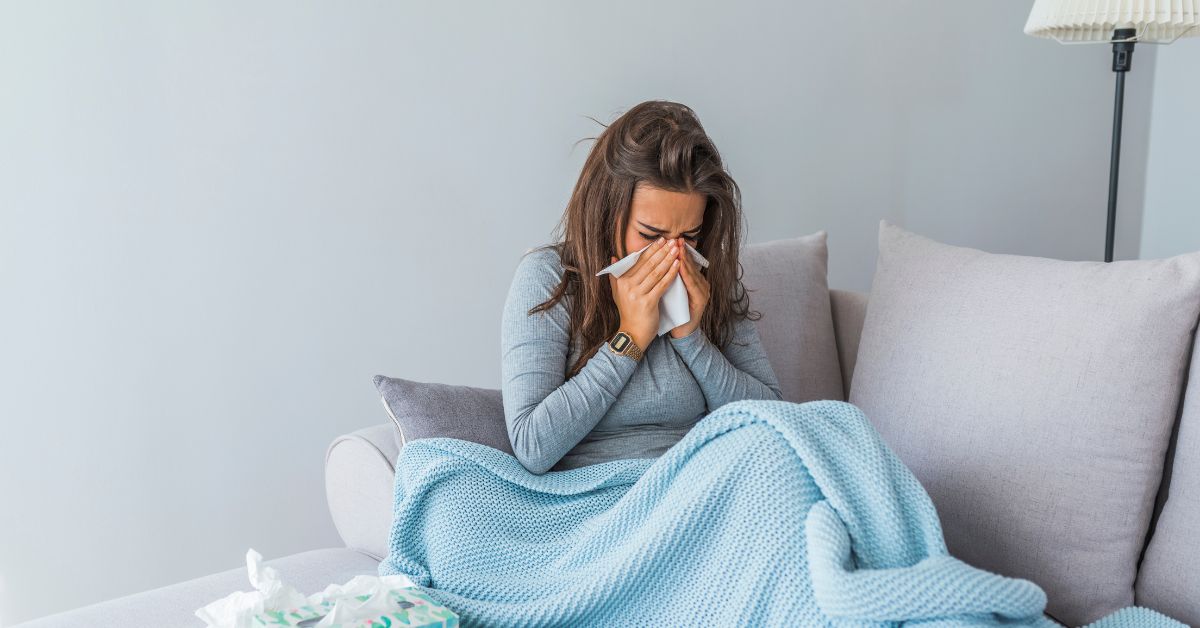Not wanting to get in the car and drive through a major snowstorm. Only talking with those you already know at networking events. Only taking the scenic routes. All of these may be smart, well-thought-out decisions – but understanding how to know if you need anxiety medication is important for your mental health.
Anxiety is a natural response to stress, but when it becomes overwhelming and starts interfering with daily life, it may be time to seek professional help. While therapy and lifestyle changes can be effective treatments for anxiety, medication can also play a crucial role in managing symptoms for many individuals. However, recognizing when anxiety medication might be necessary can be challenging.
How do you know if you need anxiety medication?
People who have anxiety are usually aware that they tend to worry a lot. They know they might consider the worst-case outcome and hesitate when taking any sort of risk.
“Anxiety can manifest both physically and mentally,” Jordan Allison, PsyD, a clinical psychologist at Mercy Health – Urbana Family Medicine Pediatrics, shares. “Common physical symptoms include increased heart rate, muscle tension, sweating, and stomach discomfort. Mentally, individuals may feel overwhelmed by worry, experience racing thoughts, or have difficulty concentrating.”
But sometimes, stress and anxiety go too far. When your fears and worries prevent you from seeing your loved ones, doing your job well or living your life fully, it may be time to try anxiety medication to handle your symptoms.
Having anxiety doesn’t mean you’re not a good, capable and productive person. In fact, it doesn’t have anything to do with your character. Having an overwhelming level of stress and anxiety isn’t your fault. That’s why treatment can be so effective to help you improve your mental health and wellbeing.
What does it feel like to have anxiety?
There are telltale signs that you have anxiety. Do you have excessive, uncontrollable worry about some activities? Concern about a specific action happening in the near future is understandable and healthy. But extreme worry about many things in your life may suggest something more.
Do you avoid social settings, especially anything resembling a performance? True, not everyone wants to sing on stage. But if you’re overwhelmed by the idea of standing up at work and introducing yourself, that could be anxiety.
Speaking of doing something that makes you uncomfortable, does your heart pound and race? Do you find yourself sweating, trembling and short of breath? Some people with anxiety even experience feelings like they’re having a heart attack.
Anxiety can also mean having a fear of being in a place, like a concert hall, that would be hard to exit if panic symptoms arise. You may have an unreasonable fear of insects, blood, heights or flying. Maybe you have flashbacks or nightmares. Maybe you find yourself doing something over and over, double and triple checking, to make sure everything is OK.
When should you see a doctor for anxiety?
Not all anxiety is necessarily bad. We need something that tells us not to jump off mountains or approach wild bears. Your anxiety might become so huge in your life that it’s stopping you from engaging in social activities, doing your job, going to school or just enjoying things you once loved, though, so it may be time to seek medical attention.
“Everyone experiences anxiety differently, but if you find it difficult to control your worry, or if it leads to avoidance of certain situations or responsibilities, professional support can help,” Dr. Allison says.
Talking with a professional and/or taking anxiety medication can help when you find yourself making the “safe” choice all the time. That’s even if anxiety takes you far out of your way or stops you from doing something you know you should.
It’s worth talking to a doctor if you can’t bring yourself to leave the house because you fear something bad might happen. People who feel like they’ve tried everything to reduce their anxiety and nothing is working may greatly benefit from working with a medical professional.
Signs you need anxiety medication
While there are several ways you can treat your anxiety, sometimes medication is a useful tool to help you manage it better. There are some notable signs to be aware of to help you make an informed decision.
Persistent symptoms
One of the primary indicators that you may need anxiety medication is the persistence of symptoms over time. If you find that you’re experiencing anxiety symptoms most days of the week for several weeks or months despite trying various coping strategies, it may be a sign that your anxiety requires additional intervention.
Severity of symptoms
The severity of your anxiety symptoms is another important factor to consider. If your anxiety is so intense that it significantly impairs your ability to function at work, school or in your relationships, it’s a clear indication that you may benefit from medication.
Symptoms such as panic attacks, constant worrying, insomnia and physical manifestations like heart palpitations or stomach issues can all signal the need for more intensive treatment.
Impact on daily life
Take note of how your anxiety impacts your daily life. If anxiety is interfering with your ability to live your life the way you want to, medication may help alleviate some of these challenges.
Lack of improvement with other treatments
If you’ve already tried therapy, lifestyle changes and self-help strategies to manage your anxiety but haven’t seen significant improvement, medication may be the next step.
It’s essential to give other treatments a fair chance and work closely with your physician or a therapist to explore different approaches before considering medication.
Physical symptoms
Anxiety doesn’t just affect your mind – it can also take a toll on your body. Physical symptoms such as muscle tension, headaches, dizziness, fatigue and trouble sleeping are common manifestations of anxiety. If you’re experiencing persistent physical symptoms alongside emotional distress, medication may be part of a comprehensive treatment plan to address both aspects of your anxiety.
Family history
Genetics can play a significant role in predisposing individuals to anxiety disorders. If you have a family history of anxiety or other mental health conditions, you may be at a higher risk of developing anxiety yourself.
In such cases, it’s important to be vigilant about monitoring your mental health and seeking appropriate treatment if needed, which may include medication.
“It’s also crucial to remember that anxiety exists on a spectrum, and everyone’s experience is unique,” Dr. Allison adds. “Consulting a mental health professional can help individuals explore both therapeutic and lifestyle interventions tailored to their specific needs. Early intervention can make a significant difference in managing anxiety effectively.”
Natural, non-medical ways to reduce stress and anxiety
Whether you work with a doctor or not, there are many natural ways to reduce your stress and anxiety. Some of these include:
- Reducing caffeine (like coffee and colas) and alcoholic drinks
- Quitting smoking
- Eating a healthy diet and exercise.
- Yoga, stretching, breathing exercises and meditation
- Getting enough rest. If you have trouble sleeping, increase your exercise so you’re physically tired at the end of the day. Once you’re in bed, practice consciously relaxing and putting your worries aside, even for five minutes.
“Connecting with friends, family or support groups can also help alleviate feelings of isolation and provide reassurance,” Dr. Allison advises.
How we can help
Are your anxiety and stress unmanageable or stopping you from living fully? Reach out to your primary care provider and start the conversation there. They can give you guidance on whether you should speak to a mental health professional first, or they may decide to prescribe anxiety medication.
Also, mental health screenings are part of your annual wellness visit. Being completely honest about your responses is often the first step to working with your provider on improving your mental health.
Learn about the primary care services and behavioral and mental health services we provide at Mercy Health.






